Title: The House That Jack Built
Director: Lars von Trier
Starring: Matt Dillon, Bruno Ganz, Riley Keough, Uma Thurman, Jeremy Davies, Siobhan Fallon Hogan
Original Languages: English
Genre: Horror, Thriller, Drama
Running Time: 155
Year: 2018
Available at select theatres and on-demand services now.
Check for your own region.
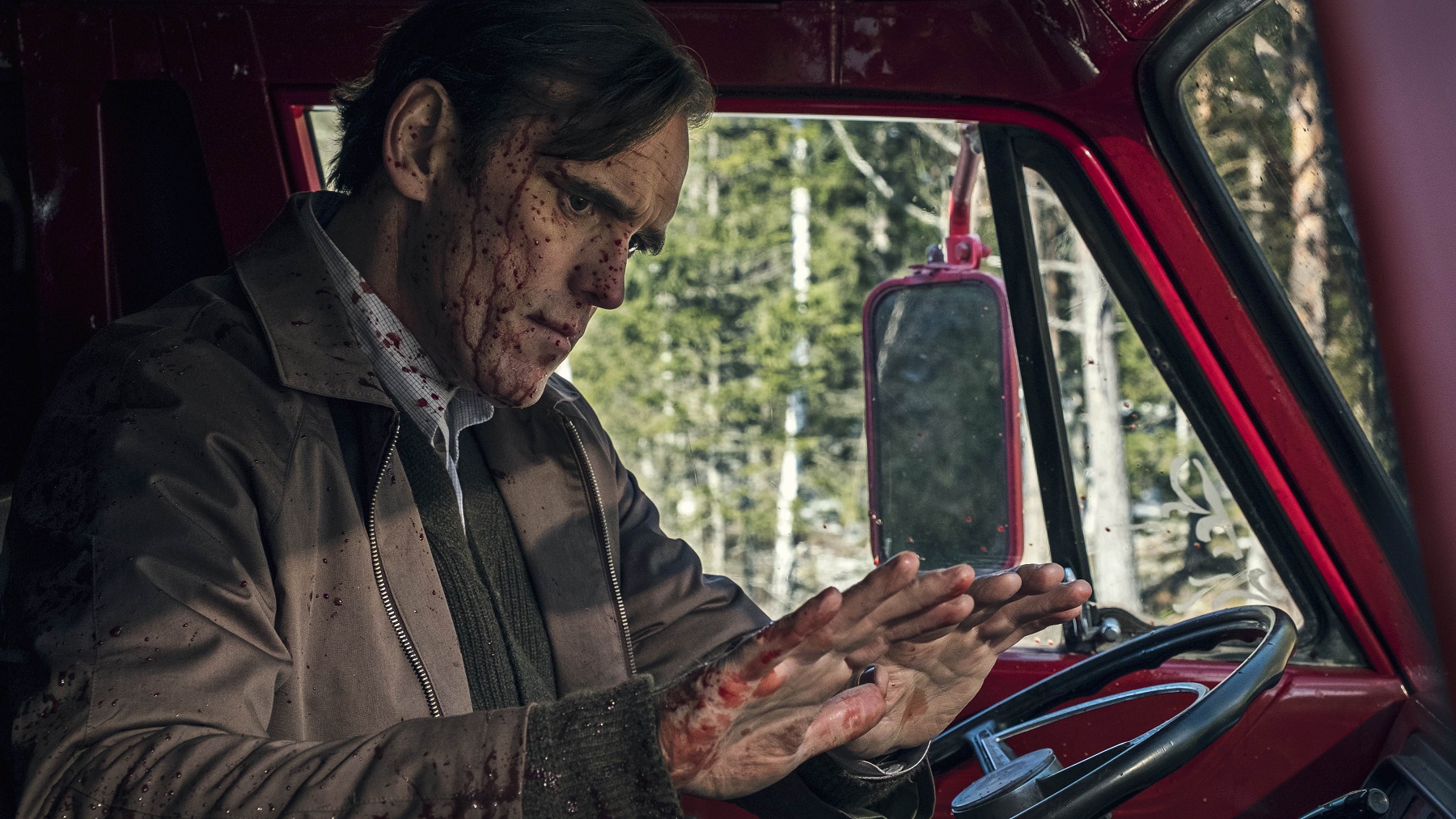 Matt Dillon as Jack in The House That Jack Built, courtesy of Mongrel Media
Matt Dillon as Jack in The House That Jack Built, courtesy of Mongrel Media
“I don’t have a handle on how many processes
take part in the decay of a dead human,
but I know a bit about dessert wines.”
Jack
Lars Von Trier has been shocking audiences for over three decades now with his controversial, but often heart wrenching, films. But, with many seeing his best work behind him, in films like Dogville and Dancer in the Dark, Trier has slowly moved into a more shadowy region of the film industry. The fact that only one theatre in the whole Baltimore/DC region appeared to be showing it on opening day (Parkway Theater, home of the Maryland Film Festival), and on top of that I was one of four people in the theatre (this was a 3:30 PM showing, one of several throughout the day/night), seems to drive this point home. As with much of his work, The House That Jack Built seems destined to be misunderstood by many and totally unnoticed by most.
Lars von Trier has always worked with subjects that veer toward the darker sides of human emotion. His first major film, The Element of Crime (1984) was a post-apocalyptic crime noir, which was certainly the darkest work he’s produced to date. Europa (1991) put Trier on the map with its tragically pessimistic conclusion enveloped in a hazy historical piece. Riget (1996) (The Kingdom), along with shows like Twin Peaks (1990), helped to change the face of television, paving the path for future shows with much more intricate plots and content which often pushed the boundaries of what was acceptable for television at the time. But, the films Breaking The Waves (1996), Dancer in the Dark (2000), and Dogville (2003) positioned Lars von Trier as a Cannes favorite for years. These three films were able to harness the subtleties of that darkness from his previous films and blend it with much more personal tales of sorrow.
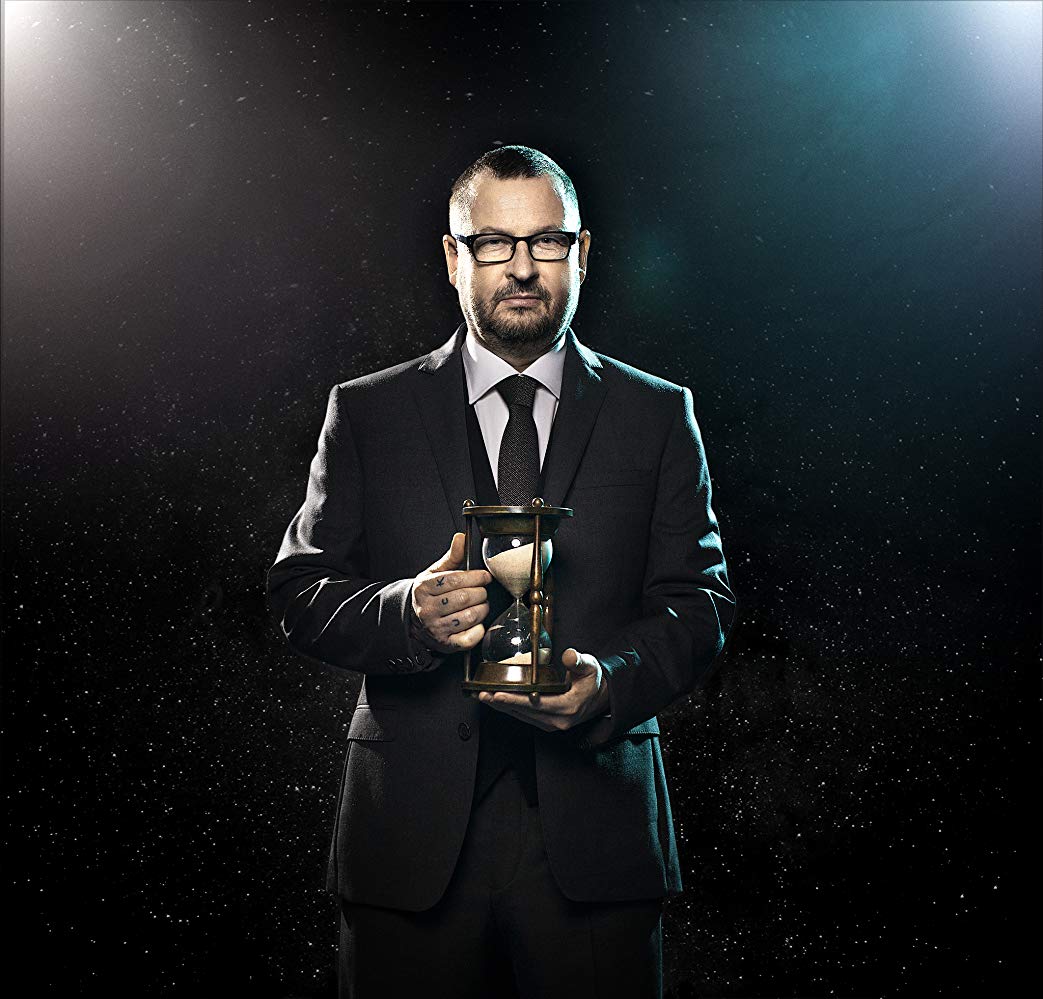
Director Lars Von Trier – Courtesy of Magnolia Pictures
However, it wouldn’t be long before Trier dreamed of returning to the darkness that seemed to be at the source of his original inspirations. This coincided, coincidentally or otherwise, with his mental breakdown which landed him in a mental hospital for a brief stay, due to a major bout of depression. During and on the other side of that, we were presented with The Depression Trilogy. Antichrist (2009), Melancholia (2011), and Nymphomaniac (2013) explored the depths of utter despair and depression, and the depravity that is often spawned from these mind-states. While Melancholia received quite high esteems across the spectrum, Antichrist and Nymphomaniac haven’t been so well received by the film community or the general public. Add to this a very badly timed/executed Nazi joke, and Lars von Trier found himself persona non grata at his old strongholds like Cannes.
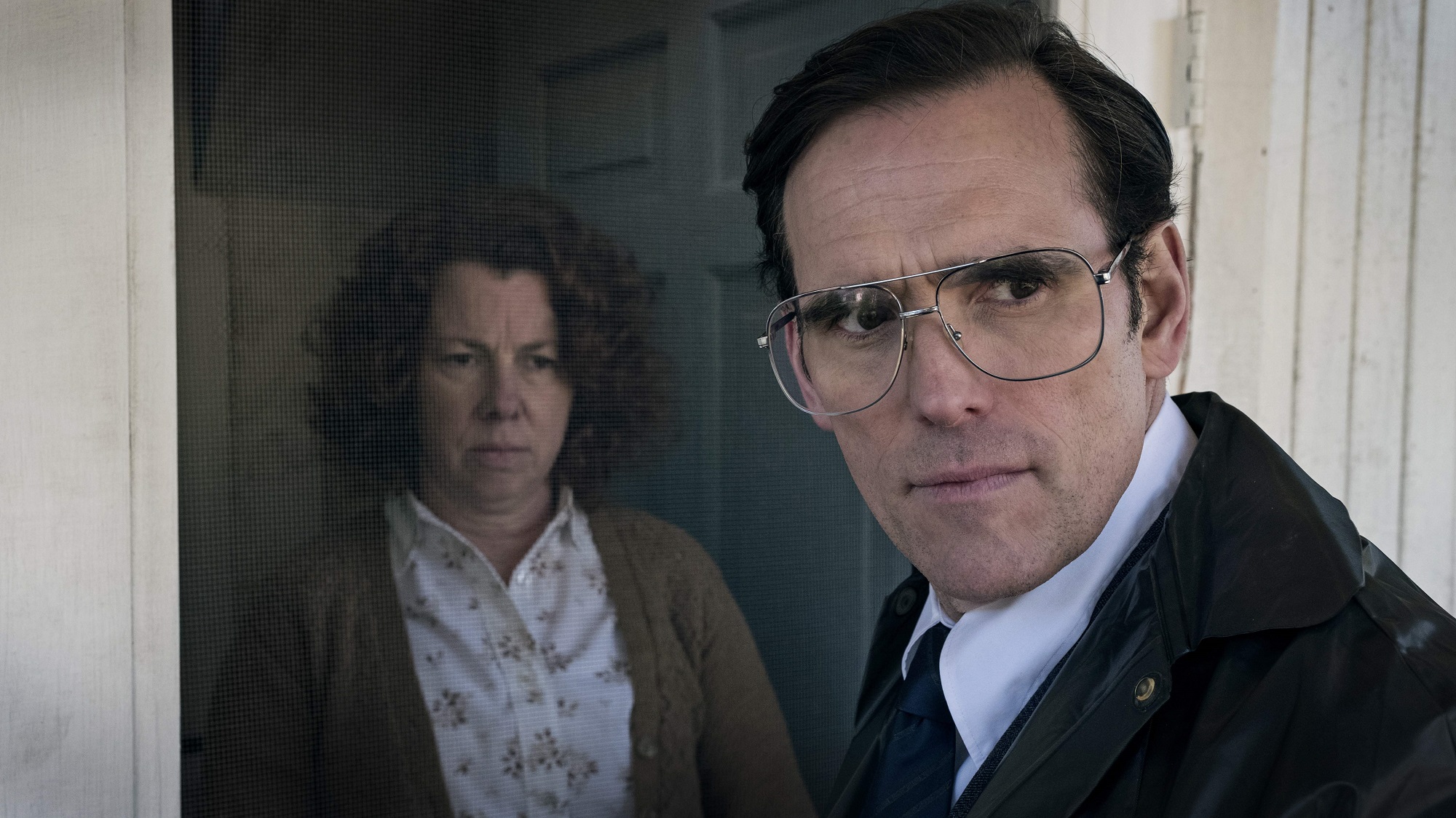
Left to right: Siobhan Fallon Hogan as Lady 2 and Matt Dillon as Jack in The House That Jack Built
Lars von Trier did present The House That Jack Built this year at the Cannes Film Festival, but it received a tepid response from crowd and critics, with many walking out of the film during some of the harsher scene. As mentioned at the beginning, the ability to see this one in theatres seems to be almost non-existent, unless you happen to live in a city/town with a film school, or other privately-owned theatre that seeks rarer/smaller films. There was news of the director’s cut being available for a brief period on YouTube the night before release, but it disappeared soon after. Luckily, the film does appear to be available for rent from On Demand services, so it should find a wider audience quickly.
“Sick, Violent and a Total Bore”
The New York Times
“Empty, Repugnant Provocations”
The New Yorker
“Von Trier can be a filmmaker of great empathy when he wants to be, but it’s exhausting to see him unable to think about the artistic process as anything other than a predator/prey dynamic.”
Vulture
The House That Jack Built isn’t going to win back any of those good/neutral critics. It is filled with violent acts against women and children. Jack almost seems to be Trier’s idea of one of these American incels, Jack delivering a speech on the injustices against modern men to drive the point home. I think this perspective will make it much harder for Trier to reconcile this work with his left-leaning critics who have been labeling him a misogynist for years. I have seen the positive traits Trier wants to evoke in so many of his female roles/actresses throughout the years, but if you were in the camp that felt he was already being demeaning toward women, this one will send you quite further down that path. Of course, there will be lunatic loving sadists coming to this film for the wrong reasons, just as there will be social justice warriors giving it attention from the other side, but I try to separate art from reality and see the film as it is supposed to be, incredibly uncomfortable art with many nuances.
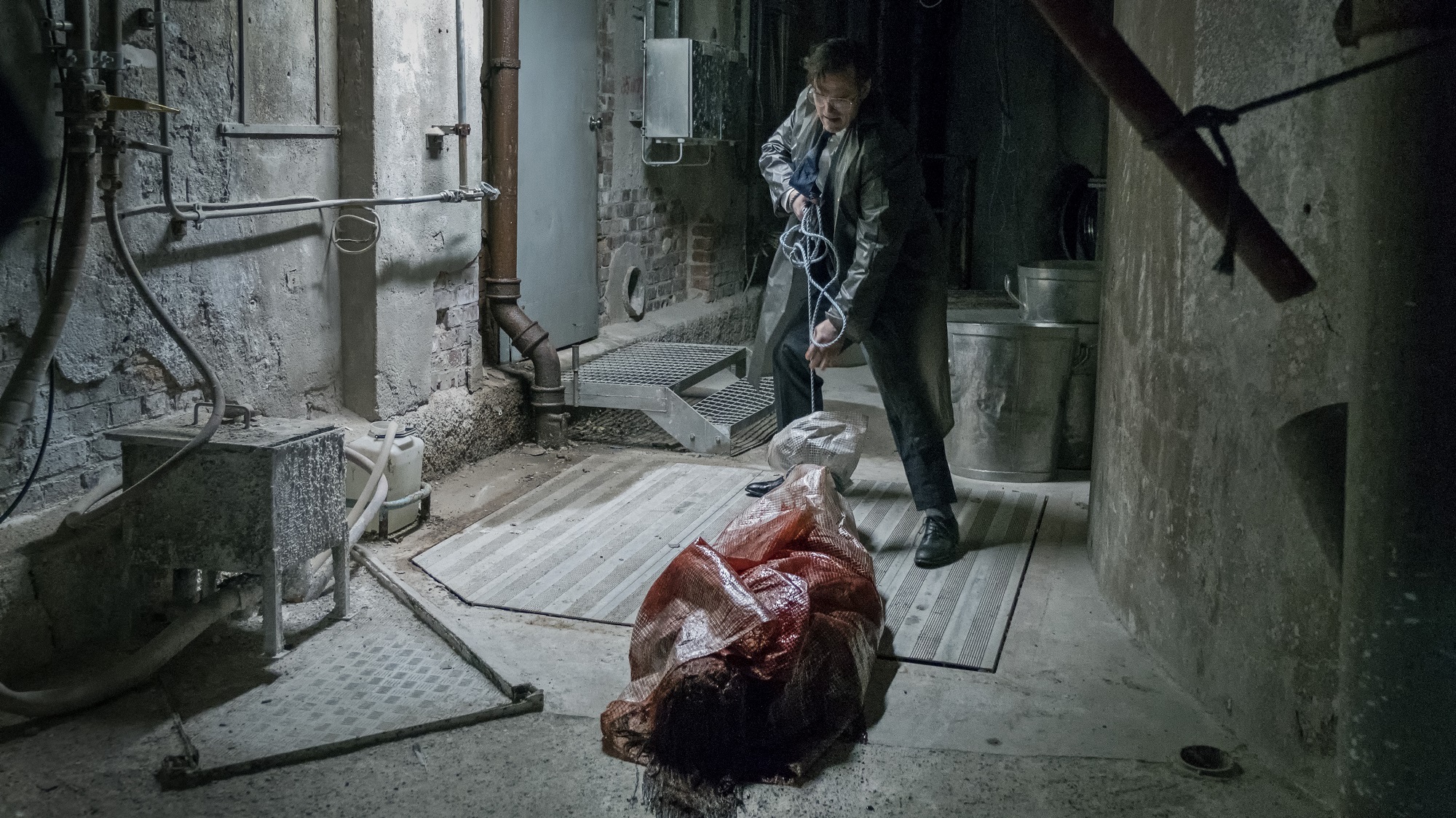
Matt Dillon as Jack in The House That Jack Built, courtesy of Mongrel Media
This film certainly follows in the footsteps of The Depression Trilogy in many of its features. Though, there do also seem to be enough differences to say that he has moved on from that trilogy and is not seeking to add this to its ranks. But, as you will see, Lars von Trier has continued to keep a strong connection between the actions of his protagonists and mental diagnoses with, for instance, Obsessive Compulsive Disorder being used to invoke some of the most comical moments of the film.
“A murderer with OCD it’s almost ridiculous. But how unfortunate for you Jack, and to top it off, with cleaning compulsions.”
Virgil
The best way I could sum up the film is to say that it is a perfect combination of the Hannibal (2013) TV show with American Psycho (2000). These elements are, of course, run through the Lars von Trier filter, meaning there will be the sorts of halts in narrative, tutorials, and multiple time-lines which have been staples of The Depression Trilogy. The film is more-or-less a narrative, Jack tells Virgil (author of The Aeneid) about a few of his most memorable kills/situations as they are traveling together.
*Possible Spoiler*—> While the majority of this film follows the above framework, the epilogue takes us into a vastly different situation. This is the part which makes me wonder if this will end up being my favorite Lars von Trier film of all time. I will not give away the scenes/events, but I will say that we are taken into another place, a place which could hold analogies to David Lynch‘s Red Room. While in this place, there is a sound, a sound which must be heard at great volumes. This sound is a sort of dark-ambient droning I would say, it’s really quite an impressive sound which adds so much emphasis to the scene. So there are dark ambient drones and a sort of alternative Red Room scenario. <— *Possible Spoiler* The final point I’d like to mention on that connection is in the way that new chapters are introduced in the film. Trier has used this style in the past, but I find it to be the most well executed in this film. The animations of these chapter-markers show the handwritten text reverse-dripping. The scenes are very Trier, but they also seem incredibly Lynchian to me, like artwork that could be pulled right out of his studio. This isn’t to say that Trier is ripping off David Lynch, I don’t think he is at all. But, the things that make me like both of these directors so much can come into such harmony at times that it surprises me. I often daydream of what sort of monster would be created if these two directors were ever to work side by side on a project. Alternate directing television episodes? I think there could be gold there!
Matt Dillon plays the serial killer Jack. While he’s a well-enough-known actor in Hollywood, and has been starring in films for decades, he’s never gotten the esteem or top-roles of actors like Ben Affleck, Matt Damon, Jake Gyllenhaal and other grounded-sort-of-actors. This role, if you’ve totally separate it from any feelings on Lars von Trier, was played magnificently by Matt Dillon. It is a combination of him being a natural choice for the role and him truly living up to its demands. He is able to successfully convey a range of emotions in this role that will take the viewer from laughing out of their seat, to trembling with unease at his psychopathic, homicidal gaze. Performances by victims Uma Thurman and Riley Keough also stood out for me, along with the epic voice of Bruno Ganz.
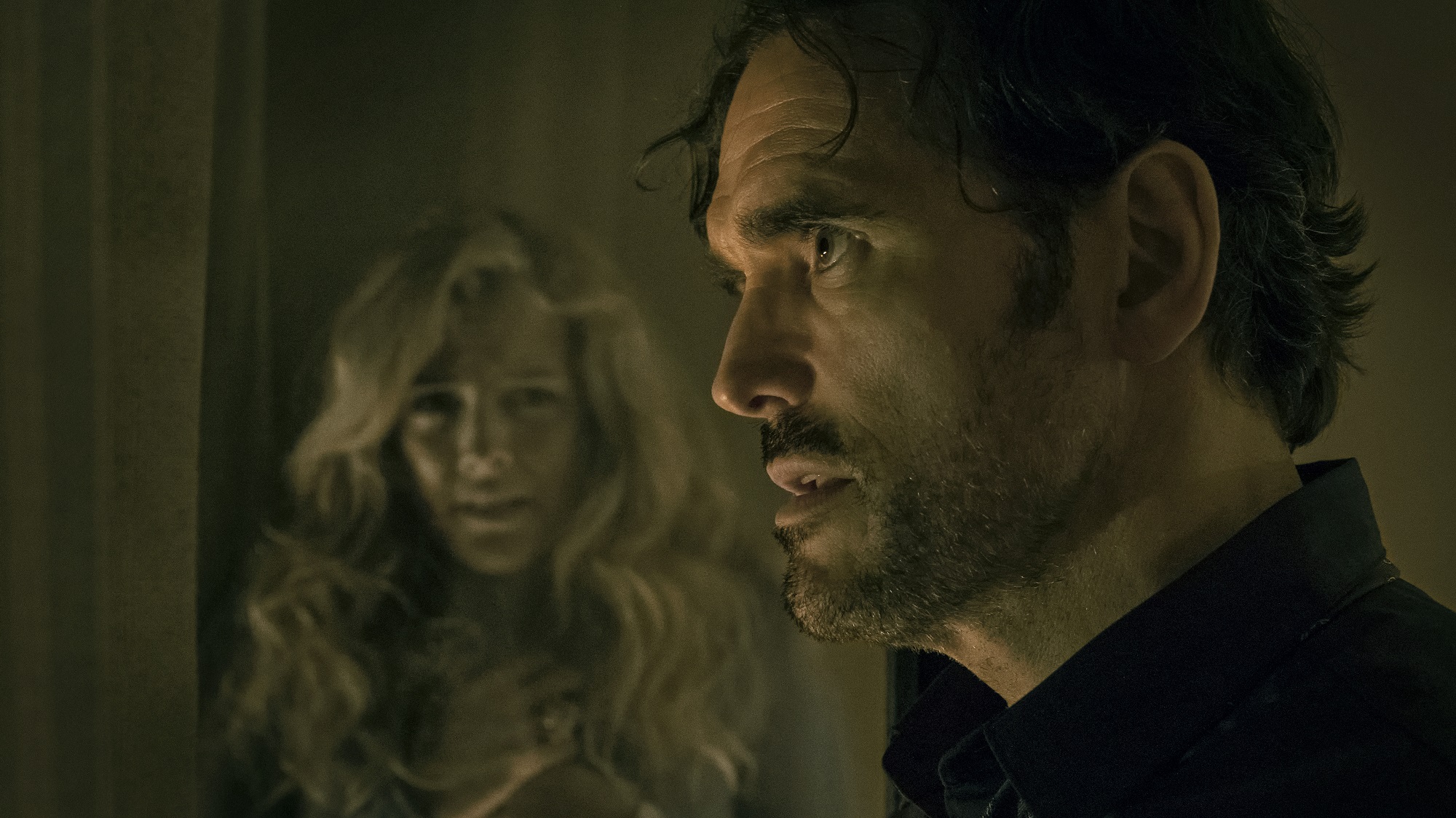
Left to right: Riley Keough as Simple and Matt Dillon as Jack in The House That Jack Built
The film is shot, mostly, using the hand-held camcorder format which Lars von Trier has been incorporating for quite a long time. There are also the occasional art stills which have been so beautifully realized in his past works. There are sort of scrapbook-like pieces added throughout as well, along with the aforementioned tutorials. In short, this is typical Trier, atypical Hollywood. There is a point in the film, where we are given a deeper glance into the works of Trier. This moment will be obvious to viewers because he actually uses scenes from throughout his film career to convey the message. I’ll leave that one to you, but it is worth noting that he really seems to be working with something personal here. Maybe, as with depression, Trier sees elements in this film that have been essential to his entire career.
I’d rather not go into too great of detail on the specifics within the film’s narrative. I recommend watching it for past fans of Trier’s work. But, this one should be interesting well outside his usual crowd. There is a massive market these days in the genre of true crime. Books and podcasts are selling off the shelves on the topic, so a new serial killer film should find its own audience easily enough. This one feels a bit less artistic as a whole, in comparison to Antichrist or Melancholia, but it still holds many of those elements which make his past films equally timeless and transgressive. If you have the stomach for a serial killer’s mentality through the no-holds-barred approach of Lars von Trier, this film is sure to delight you.
Written by: Michael Barnett
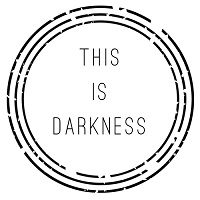
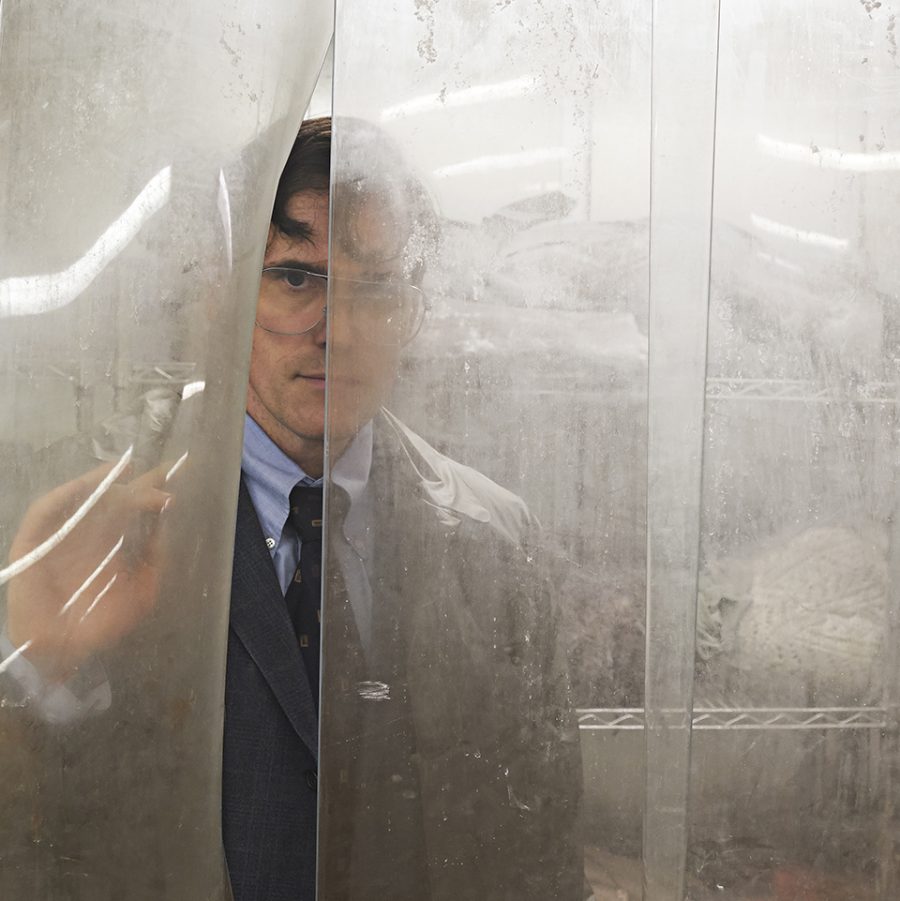
Leave a Reply